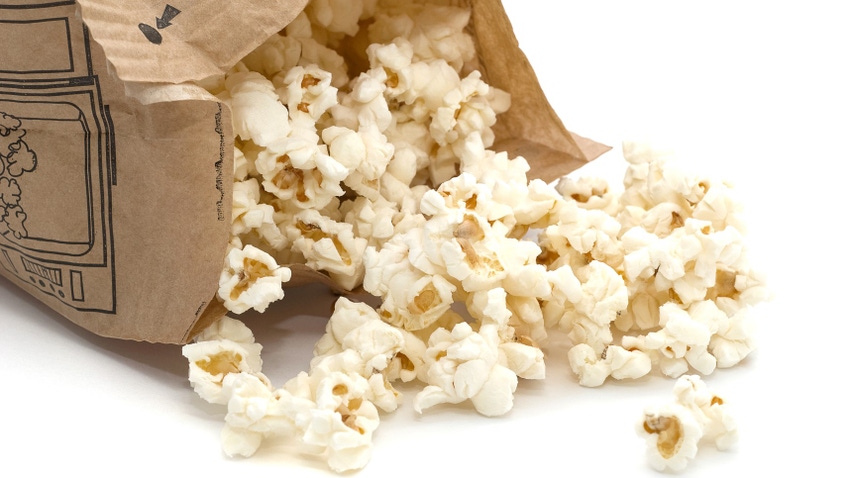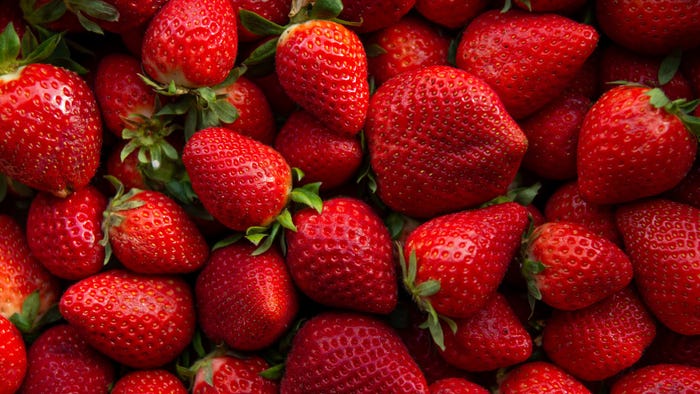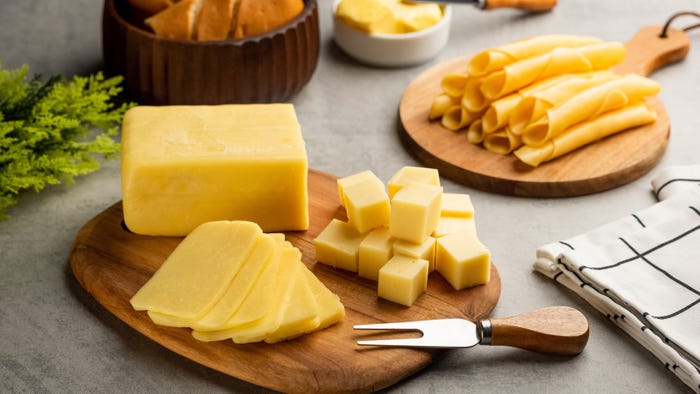Business Bites: FDA bans PFAS in fast-food wrappers, popcorn bags
6 delectable tidbits: Dangerous “forever chemicals” will no longer be sold in the U.S.; a huge grocery chain merger has been blocked; France bans specific words on plant-based meat labels; and more.

At a Glance
- PFAS are not a single chemical but rather an entire category of thousands of substances.
- The decision to block a merger between Kroger and Albertsons could have unintended consequences.
- Violators of France’s new law will receive a small fine and one year to correct their labels.
When the Food and Drug Administration (FDA) takes a stand on something, you know it’s serious. That’s exactly what just happened to PFAS, or polyfluoroalkyl substances, which the agency has banned from certain materials sold in the U.S. There are exceptions, however, to this rule. In other government news, the Federal Trade Commission (FTC) has blocked a huge Kroger-Albertsons merger, citing a threat to consumer welfare; and France issued a decree about the words you can use to market plant-based meats — and the ones they banned might surprise you.
FDA bans sales of PFAS in food packaging
PFAS are officially out. FDA announced that “grease-proofing materials” containing PFAS will no longer be sold in food packaging in the U.S. This includes items like fast-food wrappers and microwave popcorn bags.
These “forever chemicals” are not actually a specific chemical but rather a category containing thousands of potentially harmful substances — all of which FDA has reportedly now banned from sale in the U.S. But items like nonstick pans, which also contain PFAS and touch food, may not be prohibited.
"This phase-out is limited to food contact paper and paperboard food packaging," a FDA representative told Food & Beverage Insider. "Based on available science, the potential exposure to PFAS through the remaining limited authorized uses is exceedingly low. Given that the migration potential of the substance to food is considered negligible, there are no immediate plans for the FDA to take action related to the remaining uses at this time."
US blocks Kroger-Albertsons merger as threat to consumer welfare
Kroger’s proposed $24.6 billion merger with Albertsons — supposedly to spruce up the latter’s existing stores and subsidiaries — has hit a massive roadblock in the form of a lawsuit filed by FTC with support from several states. Henry Liu, director of FTC's Bureau of Competition, called it “the single largest supermarket merger in U.S. history” and warned it would bring about higher grocery prices, while Kroger asserted the opposite.
“The FTC’s decision makes it more likely that America’s consumers will see higher food prices and fewer grocery stores at a time when communities across the country are already facing high inflation and food deserts,” a Kroger representative explained. “In fact, this decision only strengthens larger, nonunionized retailers like Walmart, Costco and Amazon by allowing them to further increase their overwhelming and growing dominance of the grocery industry.”
France bans “meaty” labels for plant-based foods
Plant-based meat alternatives are all the rage. According to research from The Good Food Institute (GFI), in the U.S. alone, plant-based foods are an $8 billion market, despite consumer concerns about inflation and rising prices. In Europe, that number is a little lower (equivalent to about $6 billion), but it nonetheless rose by over 20% since 2020.
France, however, isn’t having it. The French government recently issued a decree, which I did not realize is what we are still calling such announcements, regulating how companies can market plant-based meat products. It reportedly bans a total of 21 terms, including “ham,” “bacon,” “steak” and even “filet.” Violators will face a fine (around $1,600 for individuals and $8,000 for companies) and receive one year to change their labels.

Oishii's vertically farmed strawberries (not pictured) are world famous.
Oishii raises critical funds for vertical farming expansion
Times are getting tough for vertical farms. The technologies that make them possible are advancing at an exponential rate, but the companies themselves, which promise year-round, climate-change-resistant growing conditions, are struggling, even as many continue placing big bets on the trend.
Now, Oishii, a Japanese vertical farming business known for its supposedly spectacular strawberries, has secured $134 million in Series B financing to build an even bigger, more sustainable, solar-powered vertical farm. The new facility, funded in part by Japanese telecom giant NTT, will feature new technologies focused on automation and crop expansion. The company claimed to have difficulty keeping up with current demand for its products, so this new infrastructure should help support its ambitious goals.
Americans rank highly among cheese lovers, still hesitant about plant-based cheeses
According to new research by Mintel, which analyzed the countries that import and produce the most cheese (along with Google searches for cheese, apparently), America is the number four cheese-loving nation, right behind Netherlands, France and Belgium. Other fun cheese facts: 523 varieties of cheese originate from the U.S., and 96% of Americans admit that they’ve eaten cheddar — surprising, I know. Despite this, only around 50% of U.S. buyers reported they would try an alt-dairy product or buy it again, which is why advances in the nondairy cheese market are so important.

Americans love cheese. Can you blame them?
“Nut-based cheeses deliver better organoleptic properties than coconut oil-based ones; however, they're allergens, often hard to scale and more importantly very expensive,” Ilana Taub, co-founder and CEO of Bolder Foods, said. “Coconut oil works well, as it can have both a liquid and solid state; however, it often comes with a coconut flavor, which many consumers dislike, nor is it not particularly nutritious. It's also not a local source if we're talking about North America … there are a lot of innovations around functional proteins, and particularly focusing on recombinant casein for cheese alternatives.”
Enzymatic solution reduces acrylamide in coffee products
Acrylamide is a carcinogen that forms when starchy foods encounter high heat — for example, when roasting beans to produce soluble coffee, as well as concentrates and substitutes. Now, Kerry subsidiary c-Lecta and German coffee tech company ANKA have developed a commercially available food enzyme called Acrylerase, which reduces acrylamide levels in instant and ready-to-drink (RTD) coffee beverages through direct decomposition. Apparently, you just drop the enzyme in to control acrylamide levels during existing manufacturing processes. No fuss, no muss.
“This innovative enzyme product offers a practical solution for soluble coffee manufacturers,” Marc Struhalla, CEO of c-Lecta, said in a press release. “Acrylerase can efficiently reduce acrylamide levels without compromising taste or disrupting production processes.”
About the Author(s)
You May Also Like






